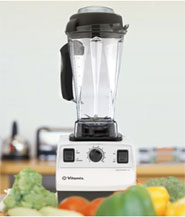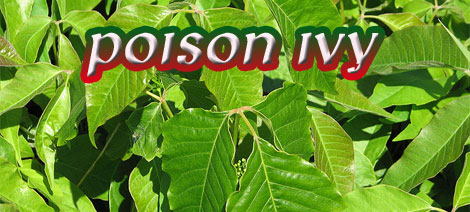Jim here... A little over a month ago, we couldn't contain our excitement about an online contest to win the best job EVER -- living as caretaker of a tropical island in Queensland, Australia, on the Great Barrier Reef for 6 months (and being paid $100k for the task!).
The deadline has come for this and, as we promised, we BOTH applied. My video was the first to be processed. So, we posted a screenshot above, which you can click to go view it (or just click here) -- and also please vote and rate it a 5!!! (I've heard that the rating system can get a little screwy on that site -- that you need to wait for it to load and maybe mouse over the rating part first. But, a 5-star rating would really help, as would the traffic, even if you don't watch the entire video.
 Jim thought it was important for me to update everyone about my health, especially since so many of you have been sending emails, etc., and I haven't responded.
Jim thought it was important for me to update everyone about my health, especially since so many of you have been sending emails, etc., and I haven't responded.
I do appreciate all the love and concern (thank you all so VERY much!), but it's painful for me to type for very long. This update is going to most likely bring about some more pain, but I don't want you to keep worrying about me and my health. So, I'll share what's been going on.
There's an antibiotic that will decrease the pain temporarily if you have Lyme disease (it won't help the pain if it's caused by anything else), and I was able to obtain some of it. So far, today is day five on it. And here's some great news: The pain started lessening on day three -- the aches completely gone, leaving only sharp pains when I move my joints in certain ways. I'll be on this antibiotic (and possibly some others for "co-infections" that sometimes come with Lyme, but I won't know until more blood tests are done and the Lyme specialist reviews the results).

Today we're running another installment of our "Thankful Thursday" series. This time, we're especially thankful ... for YOU, the Pure Jeevan family! Who'd have thought, less than two years ago when launching this blog, that we'd make thousands of connections with others looking for inspiration on their raw food journey !!? It's simply astounding -- and we're still actually "just getting started."
As always, we're thrilled to provide information and inspiration. It's counter-intuitive, when you really consider it; "raw foods" may be just two simple words, yet there always seems to be more and more to talk about, more people to interview, more success stories to highlight, more recipes to contribute, more tips and tricks to share, more personal reflections to offer.
Read more: Thankful Thursday: Pure Jeevan Asks for Your Help!
 Hey there, everyone! Thanks for visiting Pure Jeevan. We want our welcome article, for now, to be this article on Vitamix blenders. There are certainly a few essential elements (e.g. good knives, cutting boards, a good food processor, etc.) to any raw food kitchen, and one of them is an awesome high-speed blender. Yes, there are many great blenders in the world, and yes there are a few decent top-of-the-line models on par with Vita-Mix. But, at the end of the day, our recommendation is the Vita-Mix (and yes, it's better than Blendtec, in our view). Here's a crazy video Jim did a while back for a Vitamix contest:
Hey there, everyone! Thanks for visiting Pure Jeevan. We want our welcome article, for now, to be this article on Vitamix blenders. There are certainly a few essential elements (e.g. good knives, cutting boards, a good food processor, etc.) to any raw food kitchen, and one of them is an awesome high-speed blender. Yes, there are many great blenders in the world, and yes there are a few decent top-of-the-line models on par with Vita-Mix. But, at the end of the day, our recommendation is the Vita-Mix (and yes, it's better than Blendtec, in our view). Here's a crazy video Jim did a while back for a Vitamix contest:
Note: That "free shipping" code, below, is no longer active. We'll let you know when we get a new free shipping code. For now, we hope you enjoy the video. :-)
We purchased ours 15+ years ago, and have subjected it to at least daily use (if not many times per day most of the time!) -- and it's still going strong. If you don't understand why a Vita-Mix is different from even a high-end blender from a department store, it's basically the sheer power. These things can pulverize pretty much anything -- time after time, without blowing out the motor. For example, you can make ultra-thick, healthy, raw ice creams day after day all summer long, and the machine will keep on working for years (and, in our case, we're almost ready to say "decades").
We used to be an affiliate w/ them, and are reapplying to be one. For now, we hope you like the video, above.
***** DISCLAIMER: As with all of our posts here at Pure Jeevan, and particularly those coming up over the next week and a half (which will all be tagged with a new term, "Nadi Balance"), please refer to the disclaimer that runs at the bottom of all Pure Jeevan Pages. Wendi and Jim are health researchers, educators, and extreme self-experimenters; not doctors. ******
Nadi Balance: Part III
 To summarize yesterday's post, even though this sounds dramatic, the truth is: Wendi was dying. The first doctor essentially sent her home saying there was nothing wrong. The second doctor confirmed she had Lyme disease, but was too late for his method of healing, since the Lyme had already become chronic at that point. He could only offer understanding of her situation and a trial and error method of conventional medications, which rarely (if ever) heal Lyme patients. A supplement that many raw nutrition gurus recommend as essential to health for all people was actually putting Wendi's body, already struggling with Lyme bacteria, into an extreme state of distress. And finally, our own knowledge of health, diet, and healing (even though extensive and accumulated over 30 years) wasn't adequate for healing Wendi's body of Lyme, either.
To summarize yesterday's post, even though this sounds dramatic, the truth is: Wendi was dying. The first doctor essentially sent her home saying there was nothing wrong. The second doctor confirmed she had Lyme disease, but was too late for his method of healing, since the Lyme had already become chronic at that point. He could only offer understanding of her situation and a trial and error method of conventional medications, which rarely (if ever) heal Lyme patients. A supplement that many raw nutrition gurus recommend as essential to health for all people was actually putting Wendi's body, already struggling with Lyme bacteria, into an extreme state of distress. And finally, our own knowledge of health, diet, and healing (even though extensive and accumulated over 30 years) wasn't adequate for healing Wendi's body of Lyme, either.

Jim here... Well, I may have lived 100% raw for nearly one year now (and mostly raw for a few additional years), and I have definitely witnessed the reversal of many physical ailments during that time, but I can say with certainty that, if raw actually cures people of allergies, it looks like I still have a ways to go before reaching that milestone. Here's a snippet from an article I published a few years ago in a book:
I believe I was roughly 12 upon learning of my allergy to poison ivy (the hard way, naturally). By age 14, I'd heard all of the poison ivy folk lore and "wisdom" out there -? that sensitive people like myself can inadvertently contract it via smoke from a nearby brush fire, that ingesting the plant's concentrated essential oil can reverse one's sensitivity to outbreaks (even, some said, to the point of complete immunity), that scratching spreads the rash, that scratching does not spread the rash, that going to get the shot and the steroids makes it fade more quickly, that calamine is best, that it's not, et cetera.

In August of 2007, I was on the verge of an emotional breakdown. My entire world had changed since I adopted the raw food lifestlyle. My body had released nearly 100 pounds of unhealthy weight, my health had dramatcially improved, I ended unhealthy friendships, I released a lot of stored emotional memories from childhood abuse, I realized that I wasn't living in a location that met my needs anymore, and so much more. I can't think of any aspect of my life that hadn't changed, in one way or another, over the year and a half that led up to my urgent need for a retreat.
Read more: Take Time for Yourself: Peaceful Valley Ashram (video)

Just a quick post on what may or may not be considered "weird" for our inaugural "Weird Wednesday" post. According to a few web sites I checked, around 3% of the population (and I'm assuming this means U.S. population) is vegetarian. It looks like maybe 1% (possibly a little more) is vegan. Of every 100 vegans, how many do you suppose are raw foodists? (Actually, I'm asking; I didn't find any solid answer to that.) Maybe 1 of every 100 vegans? What do you think?
Here's a painfully unscientific, yet still slightly educated guess:

Jim here... We've always been fans of the Simply Raw people -- or, as I call them, the "Reversing Diabetes Naturally" people. Or ... are they the "Raw for Thirty" people? Seriously, they should probably settle on one name, don't you think? In any case, they emailed us again lately to let us know about a new video promotion they're doing, in which they'll be sharing some great videos from Morgan "Super Size Me" Spurlock, David "Avocado" Wolfe, Mike "Natural News" Adams, and Dr. Joel Fuhrman. (Sorry, I don't have a nickname for Dr. Fuhrman yet.) I haven't yet seen the videos, but I'll be checking them out ASAP to hear what these gents have to say in order to further awareness about this important topic. Here's the link:

Wow, Pure Jeevan is officially coast-to-coast now! That picture, above, is our name written in the Pacific sand. Surely, there's an apt metaphor here, if only I felt moved to make one. Instead, why don't we take a look at what Wendi wrote about this, and see if a life-lesson doesn't spring to life! Her remarks, written for Pure Jeevan readers:
So, the ideal place on paper (Corvallis) wasn t seeming quite like the perfect place for us that we thought it would be. It s an amazing little town, with a lot going for it. If someone is looking for a totally hip, laid-back, creative, educated group of people living in a small town with no unsavory extremes as far as cold and heat, then this is the place for you. For us, however, we now realize that we ve grown to love all that comes with living in a larger city. Corvallis is fantastic, but now we realize we need a larger city.
Read more: Perusing the Peacefully Percussive Pacific, Pure Jeevan Ponders Portland

To help keep all of you inspired, we ve asked some
remarkable individuals to share their raw food stories with you. Enjoy!

